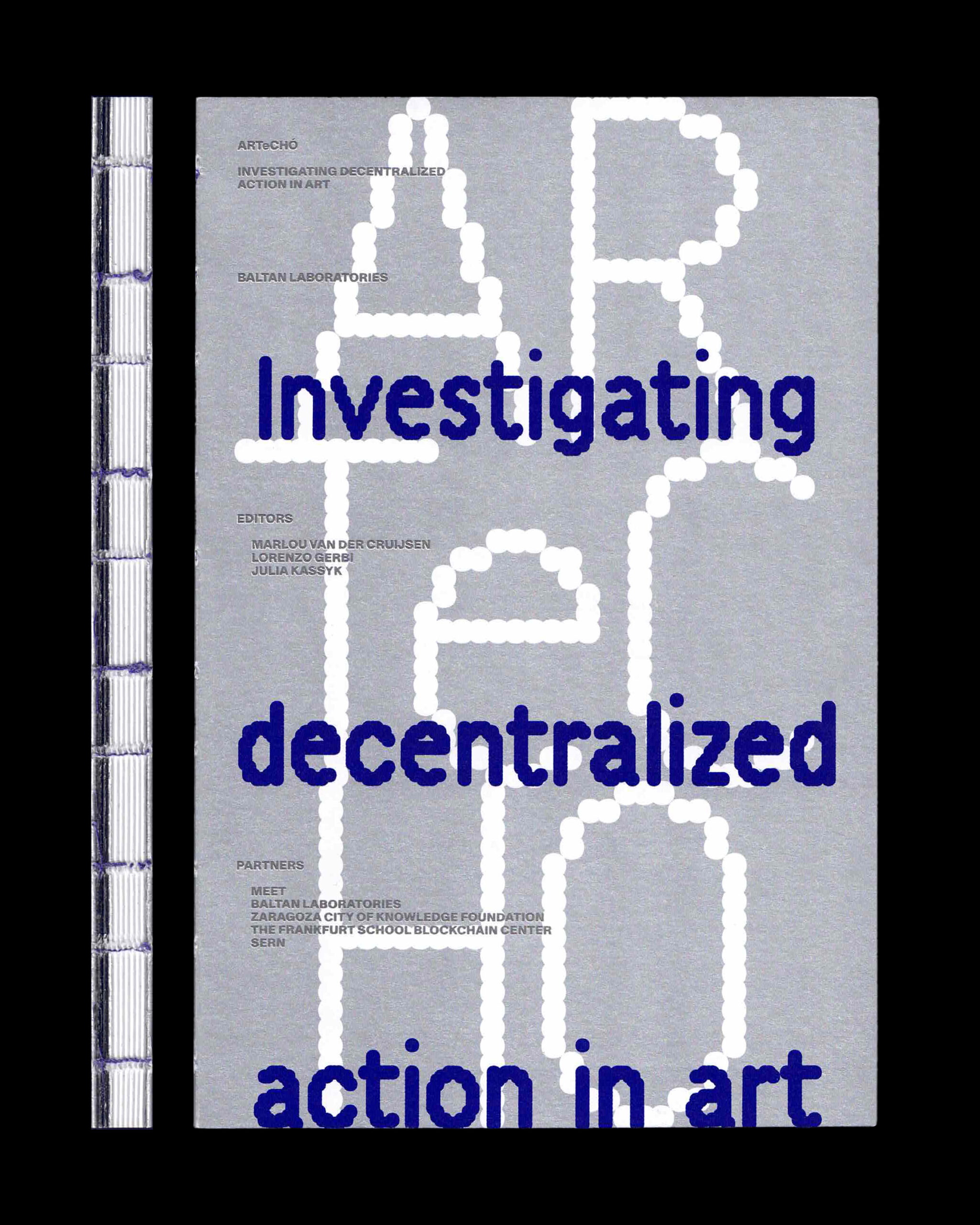genres
ARTeCHÓ
Investigating Decentralized Action in Art€25,00
Author(s): Marlou van der Cruijsen, Lorenzo Gerbi, Julia Kassyk
Appeared on: May 2025
Language: English
Pages: 144
ISBN: 9789462265455
Year: 2025
Publisher: Lecturis
In recent years, there has been a surge in the use of Non-Fungible Tokens (NFTs), for instance, to economically exploit the digital art market. At the same time, Artificial Intelligence (AI) has become a tool for facilitating everyday tasks and providing services. The complex nature of these technologies and their entanglement with the global creative sector, economics, politics and natural resources has created an urgency to explore the role that these technologies have played in society to date and how they could be used to enable a more sustainable and equitable future.
The ARTeCHÓ publication brings together artists and researchers who have delved deep into the complexities and nuances of AI and decentralized technologies, as well as the new realities they invite. The book invites the reader to ground oneself where the hope of more sustainable future brought by decentralization and the colonial and extractive legacies of the technological progress collide. Decentralization implies a move away from centralized control to a web of smaller control centres, each contributing to a larger whole. But do we instantly speak about the decentralized power when speaking about decentralized technology? Can AI not simply be trained but also educated? And can its further development be reconciled with the limited capacity of global power grids?
The essays and conversations contain in this book suggest ideas and raise questions that could serve as a guide for the development of a new economic thinking that looks beyond anthropocentric and extractive logic of the modern capitalist economy or that could expand the digital space for an autonomous knowledge commons. The publication ends with a catalogue of artworks produced by ARTeCHÓ fellows, which give examples in which, despite all the uncertainties and unanswered questions, they have put their ideas into practice and enacted a decentralized reality.
Additional information
| Weight | 1000 g |
|---|
